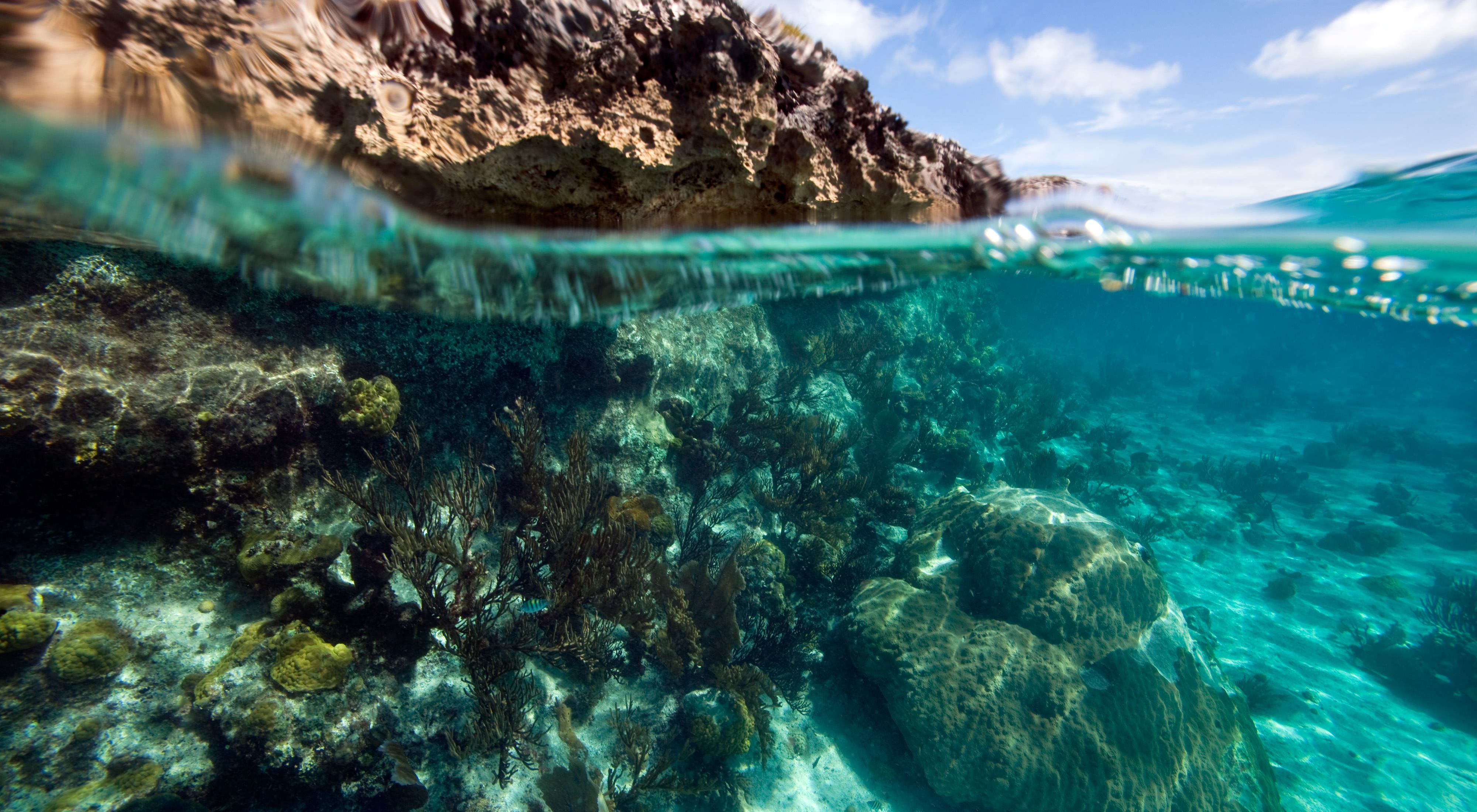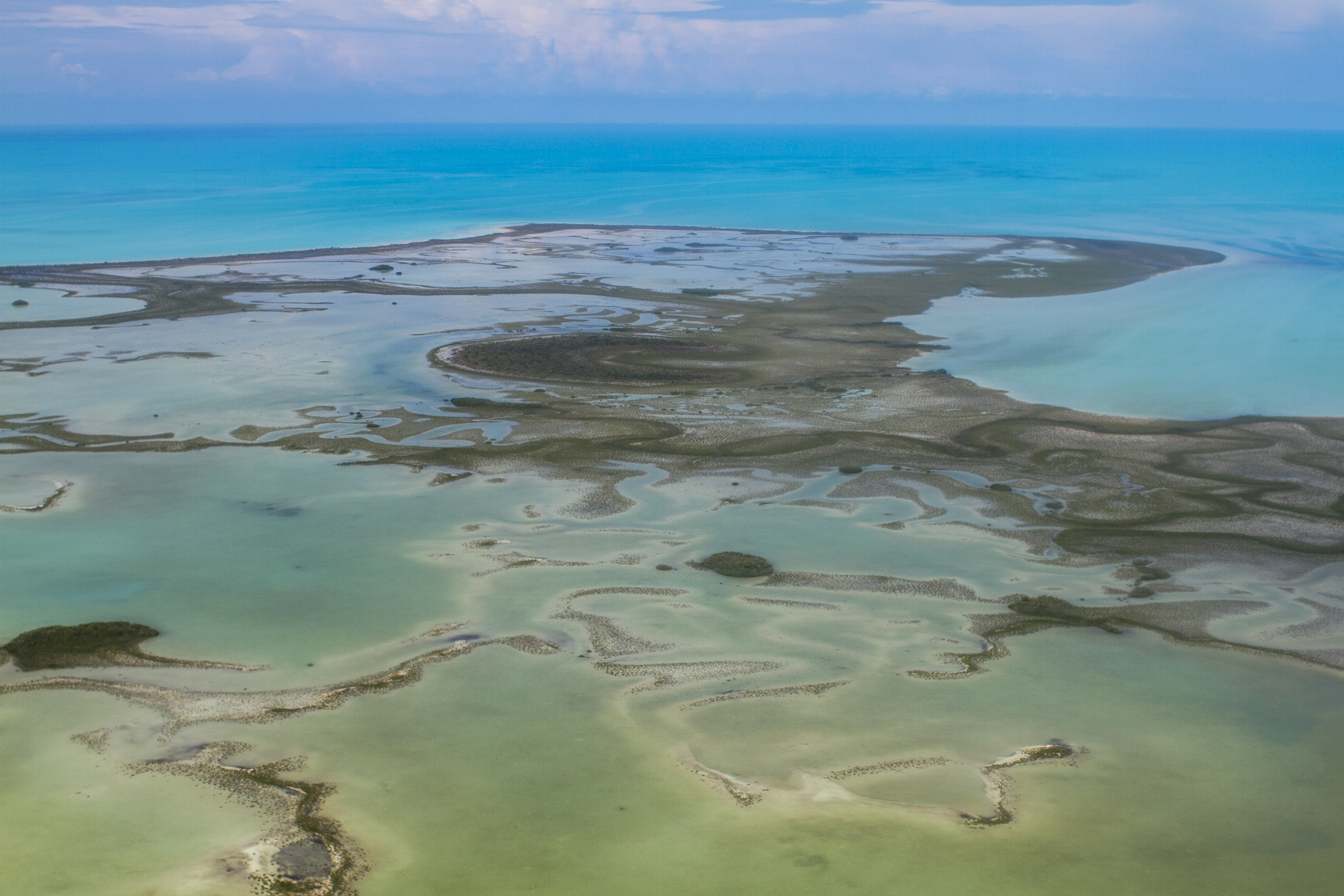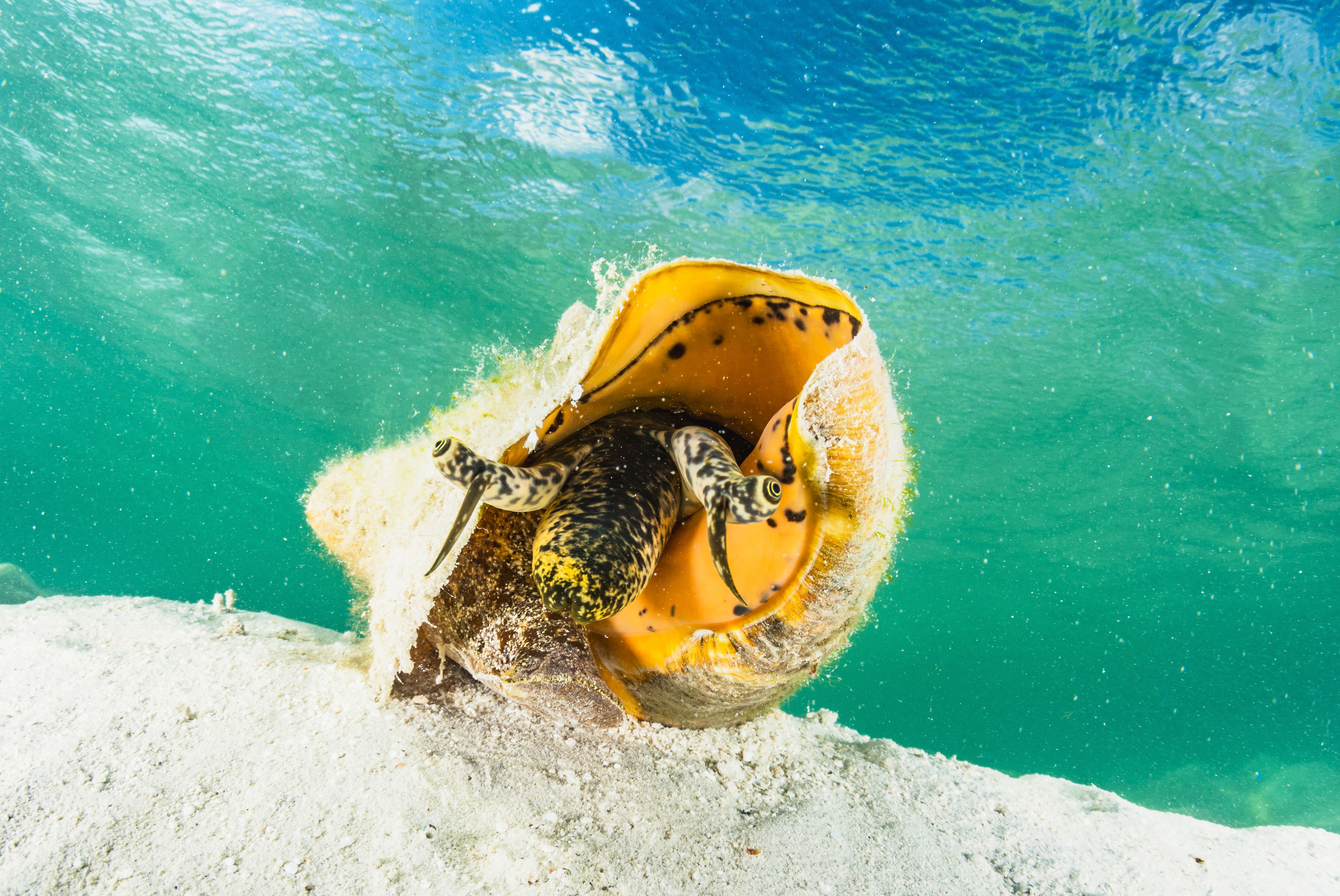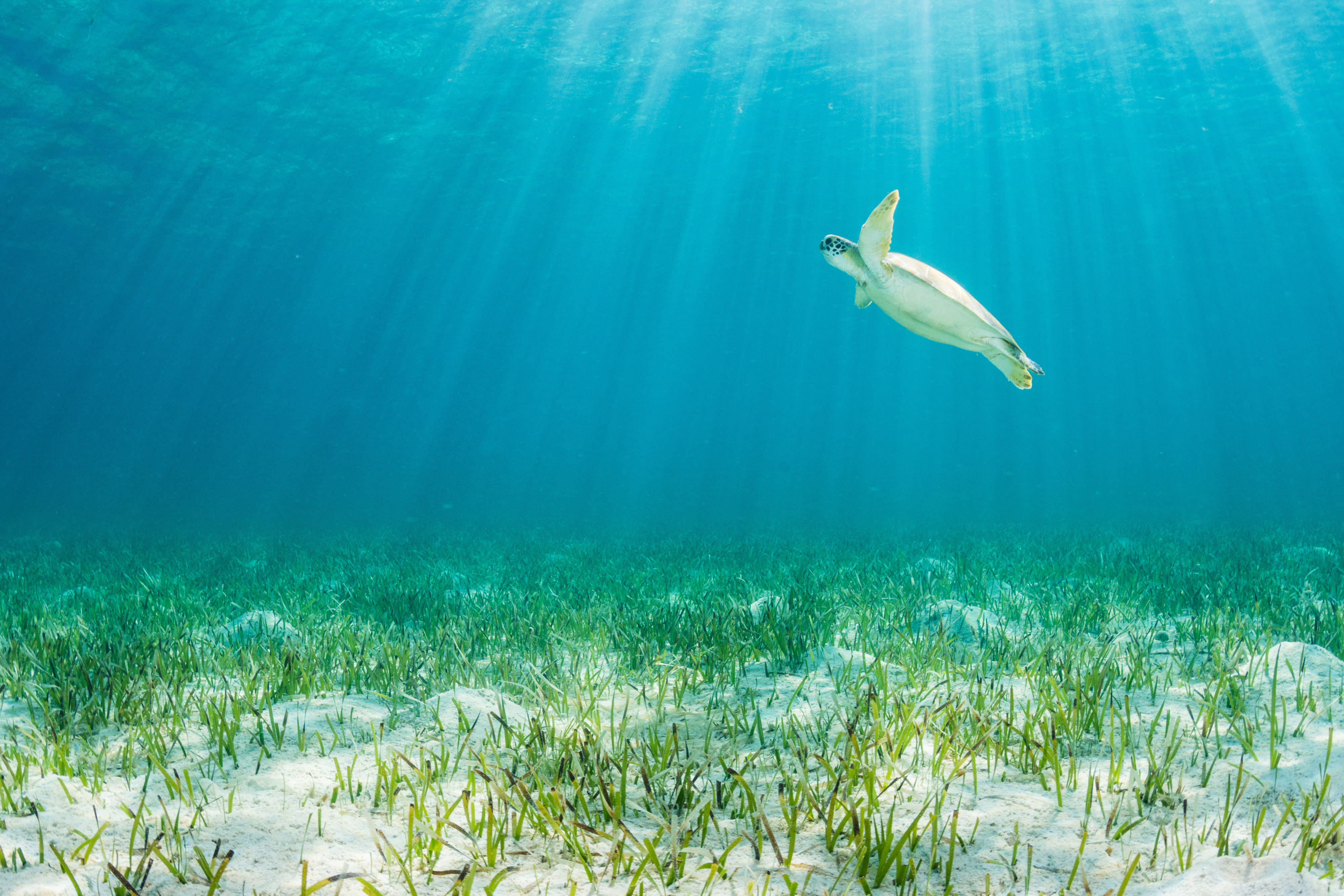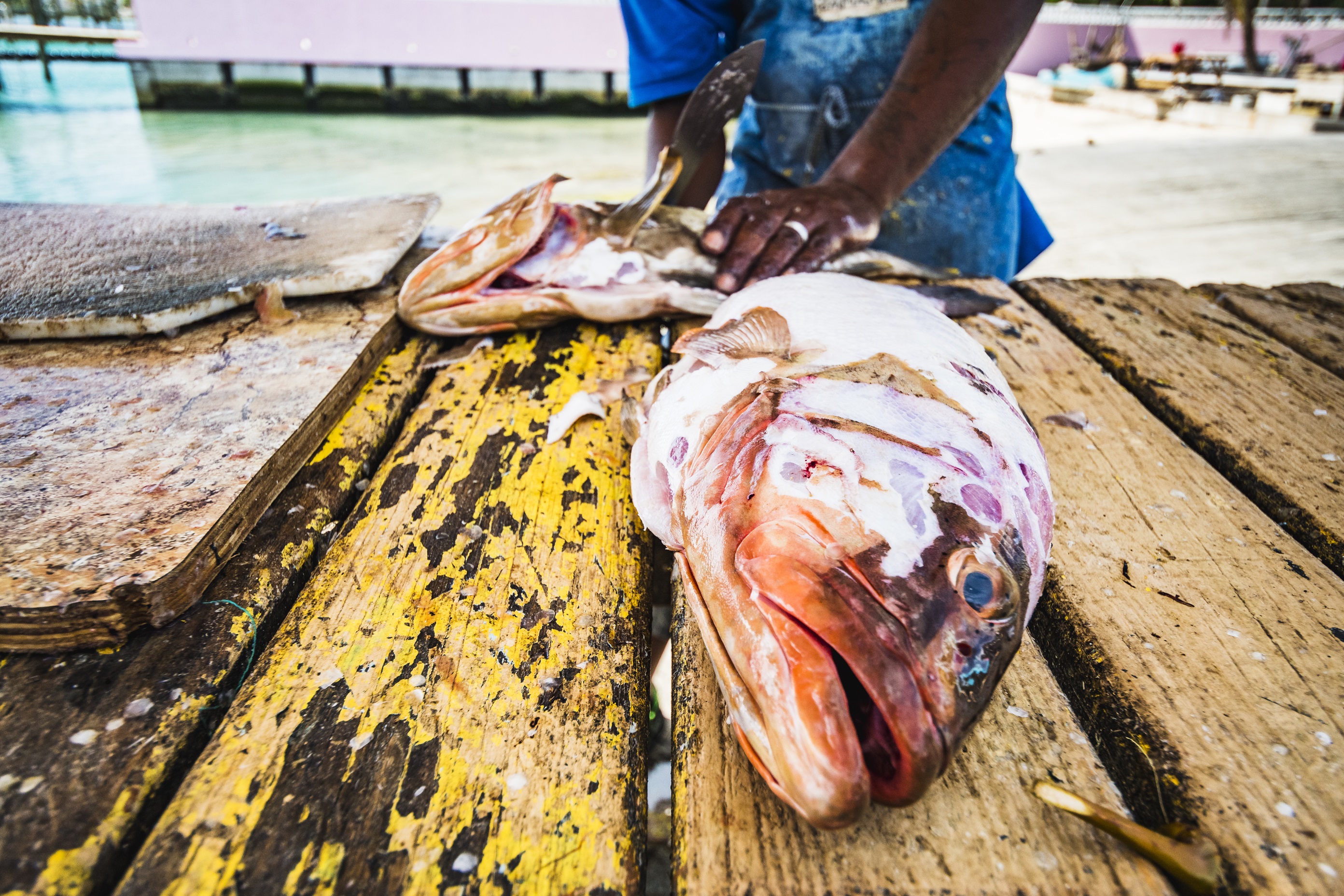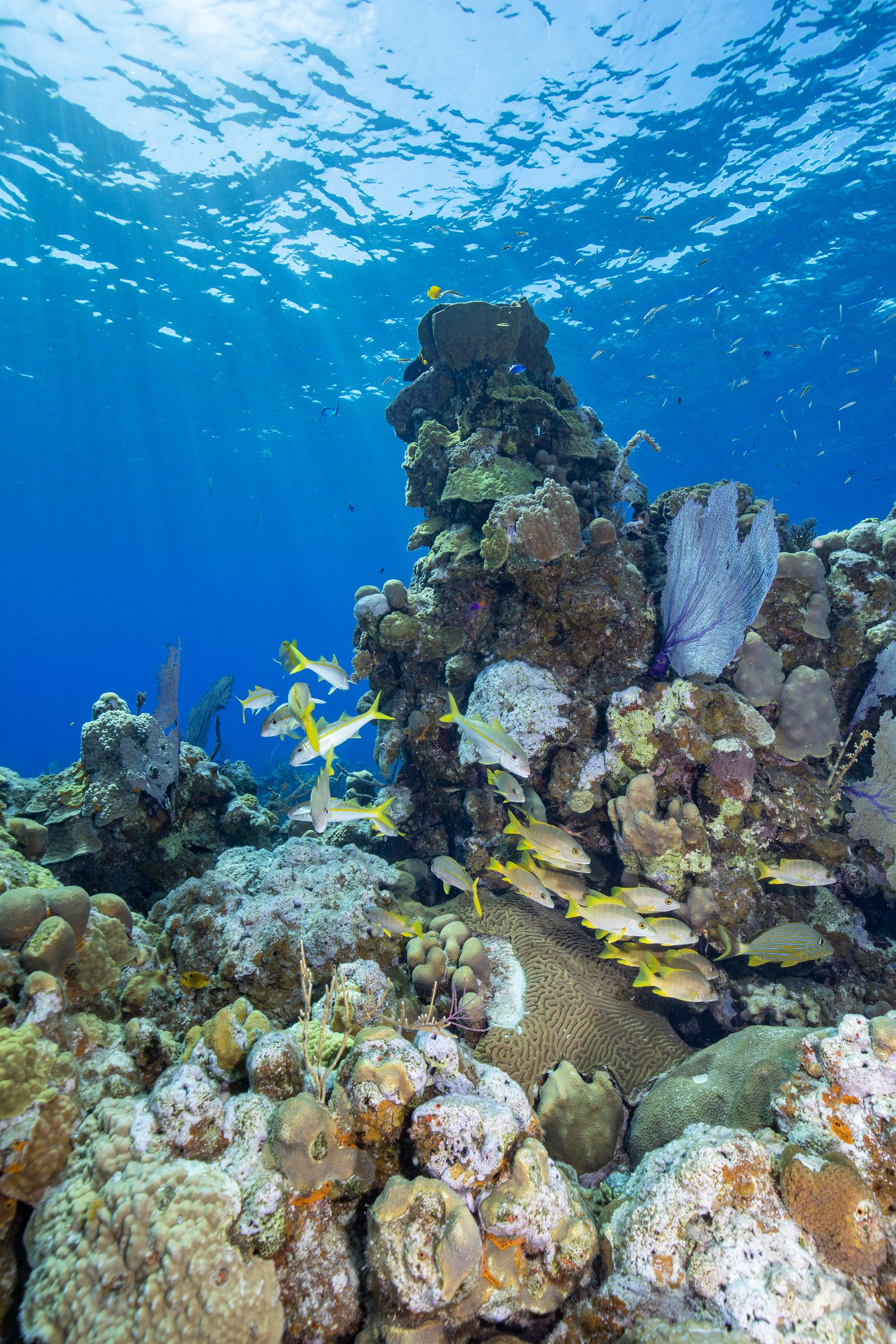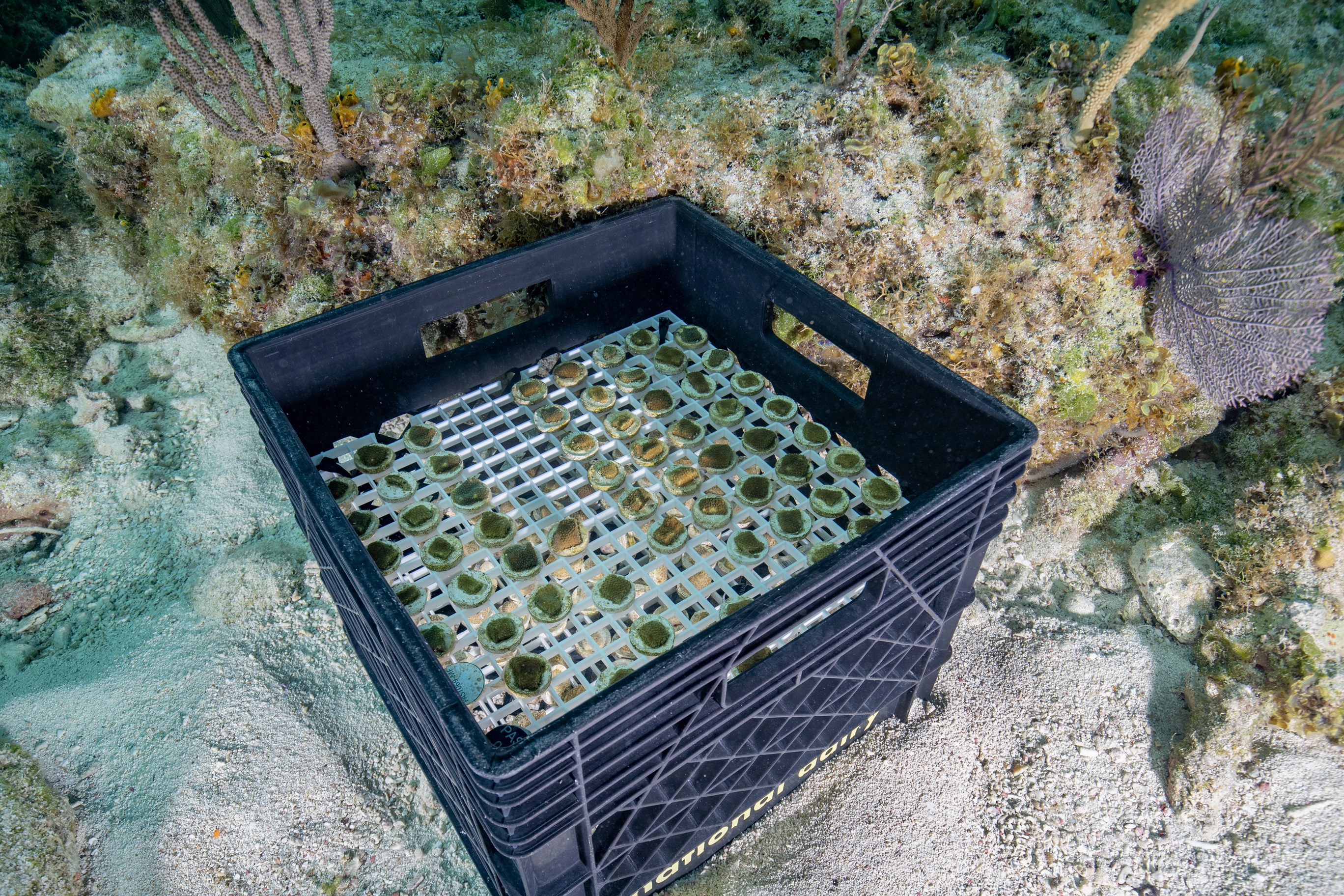The Bahamas Conservation Priorities
We envision a more nature positive Bahamas—Join our mission.

Climate Change Adaptation and Mitigation

The Bahamas is a low-lying small island archipelago which is highly susceptible to climate change impacts such as rising sea levels, increased frequency and intensity of hurricanes and coral reef degradation. Climate adaptation and mitigation is crucial to addressing these threats. Although much of the country depends on buffer systems like corals and mangroves, many of these important ecosystems are in decline. By integrating nature-based solutions in our national approach to reducing greenhouse gas emissions we can get one step closer to our conservation goal.
Addressing Climate Change
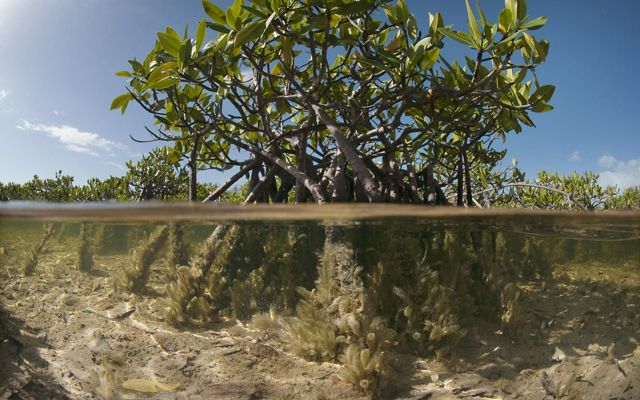

Fisheries Management

The island nation of The Bahamas is home to the Caribbean’s largest area of productive shallow water, which holds thriving coral reef ecosystems and unique species of fish, sharks, and marine mammals. These areas support one of the world’s major spiny lobster fisheries and the most important remaining fisheries for Queen Conch and Nassau Grouper in the entire Caribbean. The Queen Conch fishery alone employs more than 9,000 Bahamian fishers and contributes an estimated US$3-4 million annually to the country’s economy. However, these fisheries are facing significant declines as a result of overfishing, illegal fishing, habitat degradation, and a lack of data and capacity to effectively manage fishery resources—all of which are exacerbated by climate change. In the face of these challenges, The Nature Conservancy has been working across The Bahamas in key fisheries, such as Spiny Lobster and Queen Conch and directly collaborating with local fishing communities to enhance the voices of fishers in decision-making and ensure support for fisheries regulations.

Aquatic and Ocean Health


Coral Conservation
The Bahamas is home to one-third of the Caribbean’s coral reefs. Healthy corals are critical to the ecological and socio-economic productivity of the country’s tourism and fisheries sectors. Coral reefs contribute an estimated USD 671 million in dive related tourism, USD 23.5 million per year to fisheries production, and provide coastal protection for many of the vulnerable communities in The Bahamas. Despite their inherent value, this diverse ecosystem has dramatically declined over the past 50 years due to growing global and local threats. The Nature Conservancy is taking urgent measures to scale funding and on the ground action through scientific innovation and reef positive solutions. TNC is partnering with key stakeholders to advance protection, monitoring and long-term restoration strategies that safeguard coral reefs against stressors like overfishing, pollution, coastal development, coral disease, ocean acidification and other climatic and anthropogenic impacts.
Coral Projects
Coral In Focus




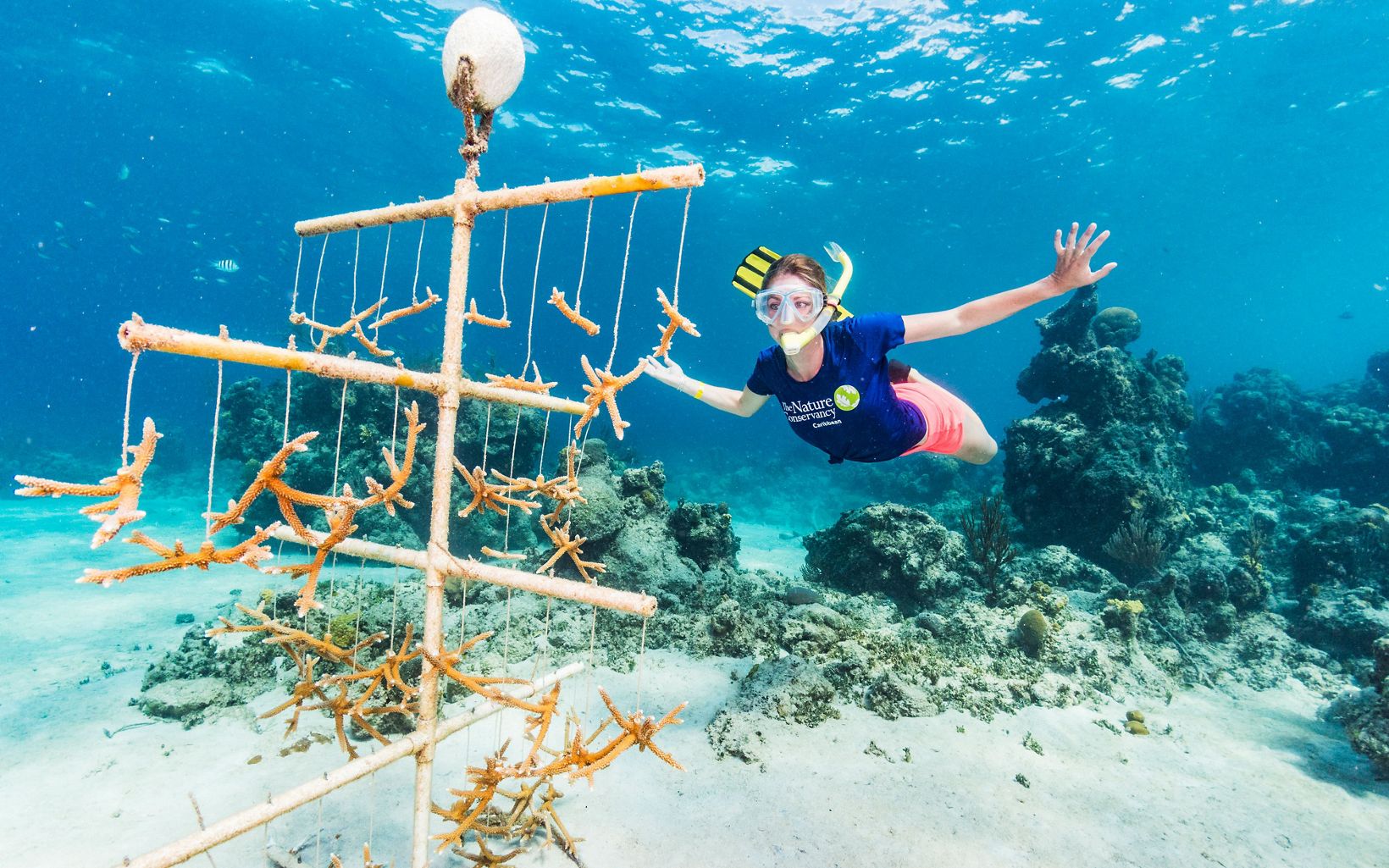
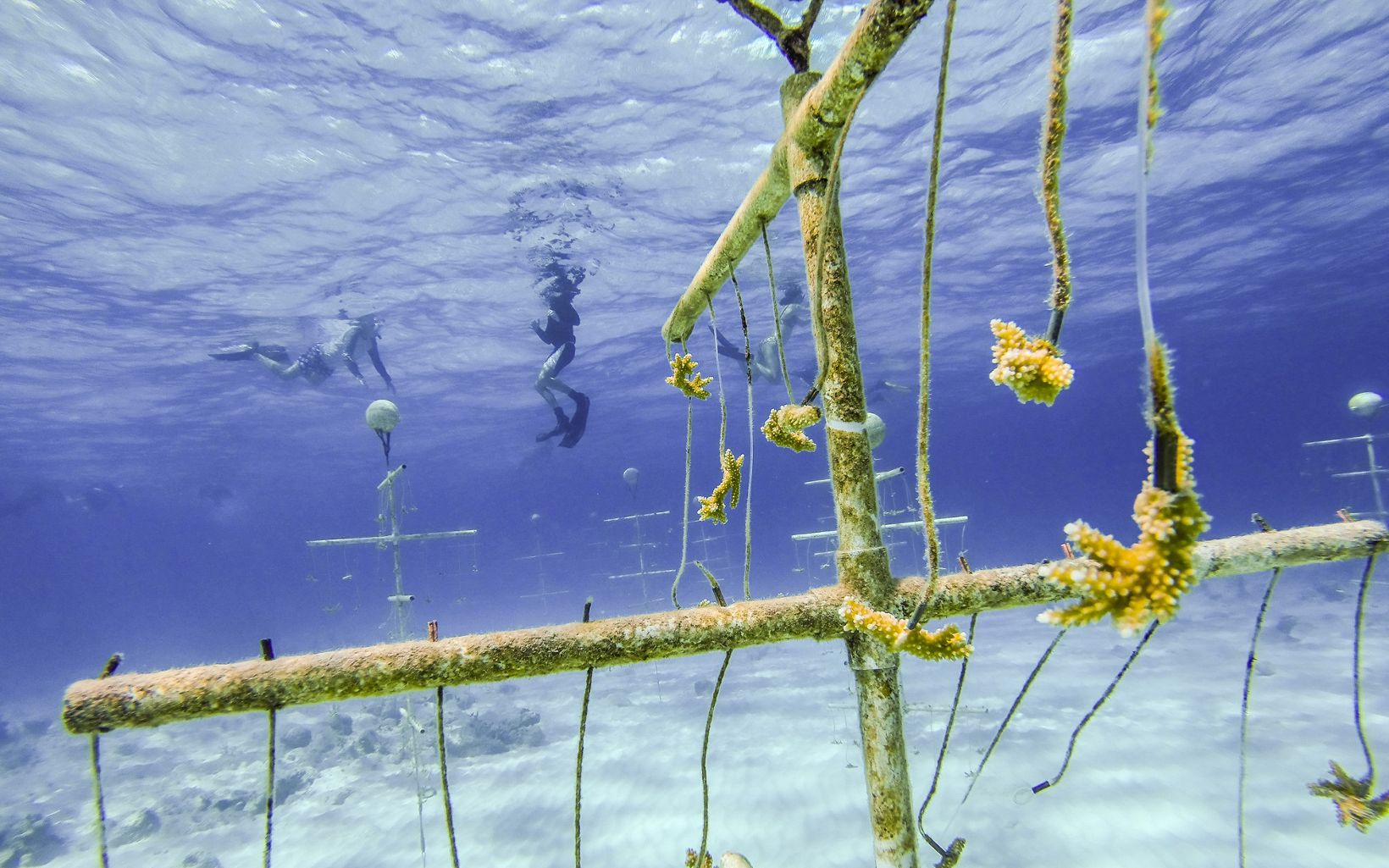
Marine Protected Areas
The archipelago of The Bahamas spans across 100,000 square miles of which approximately 95% of it is ocean. Bahamians rely on our ocean ecosystem to thrive today and in the future. it is imperative to protect the long-term health and productivity of the marine resources that millions of residents and visitors rely on every day.
The Bahamas has long been a Caribbean leader in ocean conservation and currently has 10% of its waters declared as marine protected areas. Current committments from government are to protect and manage at least 20% percent in the near future. Our work in this area prioritizes balancing environmental sustainability and supporting the needs of communities that depend on these areas. This includes supporting effective marine management and implementation of regulations because the establishment of MPA’s that exist only on paper, is not sufficient to protecting Bahamian biodiversity and the resources communities depend on.

Make a Difference in The Bahamas
Every acre protected and habitat restored begins with your support.
